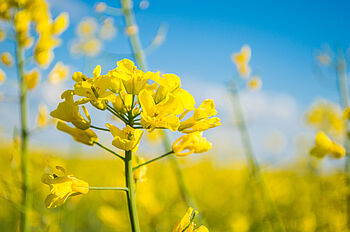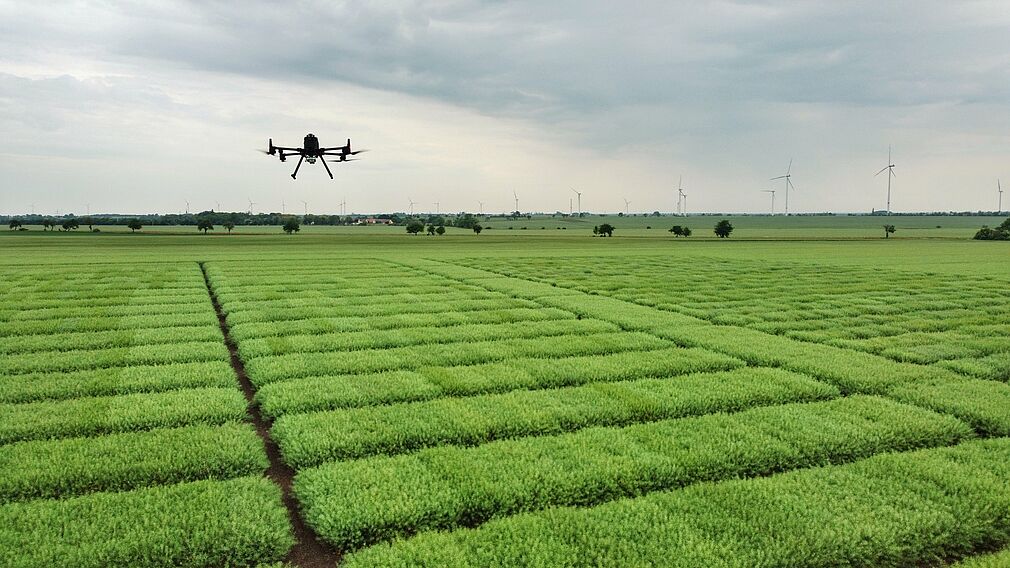Inhalt: Project details
Duration
10.2022 - 09.2025
Contact person
Dr. Andreas Stahl (RS)
Tel: +49 (0)3946 47 3600
andreas.stahl@julius-kuehn.de
JKI Project team
Institute for Resistance Research and Stress Tolerance (RS)
Institute for Crop and Soil
Science (PB)
Institute for Strategies and
Technology Assessment (SF)
The project "NORA" is funded by the Federal Ministry of Food and Agriculture as part of the German Climate Protection Programme 2022.
Inhalt: Nitrogen optimised rapeseed to reduce greenhouse gas emissions (NORA)
Background:
The synthesis of mineral nitrogen (N) and its application as a fertilizer was one of the main drivers of the green revolution allowing high crop yields. However, N fertilization has a strong impact in terms of greenhouse gas emissions. On the one hand, due to the large amounts of energy required for the production of fertilizer by the Haber-Bosch process, and on the other hand, because the nitrous oxide emissions emanating directly from the mineral nitrogen fertilizer have a climate impact many times greater than CO2. In addition, an N balance surplus can lead to nitrate pollution of water bodies. Winter rapeseed can absorb high amounts of N from the soil in autumn, yet a relatively high N surplus is lost after the harvest. Breeding more N-efficient varieties is considered a promising way to reduce these problems.
Objectives:
The aim of the project NORA is to reduce the CO2 footprint of winter rapeseed, while maintaining high yields, by improving its N use efficiency (NUE). Remote sensing will be used to describe traits responsible for a high N efficiency in a non-destructive manner. Using genomic data, the most important genetic factors will be identified to accelerate the selection of N-efficient winter rapeseed varieties.


